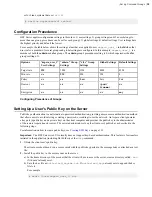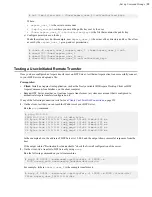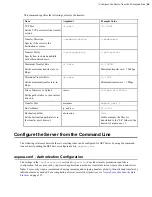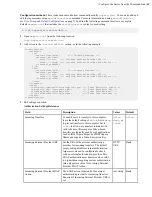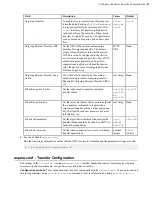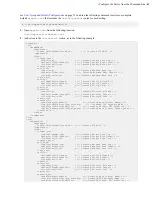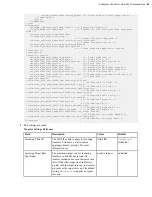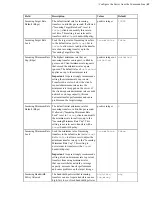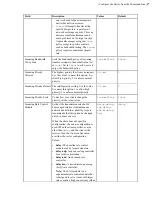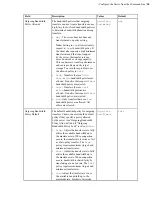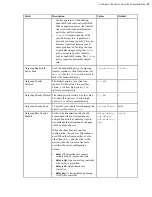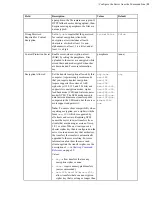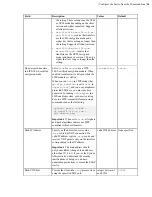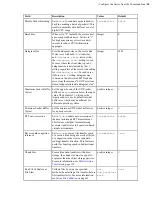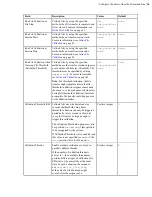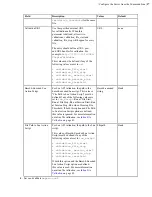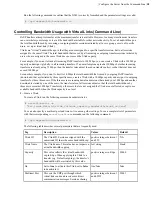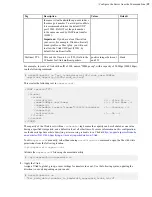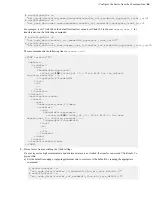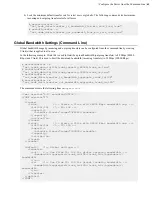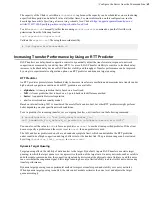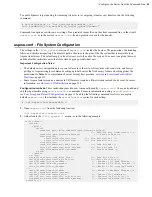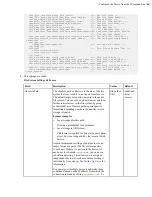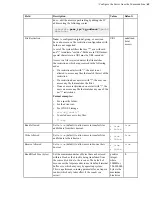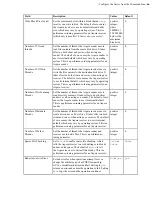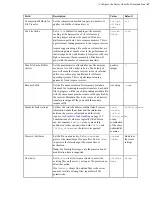
| Configure the Server from the Command Line |
52
Field
Description
Values
Default
Note:
The LAQ module is an
experimental rate control module that
is designed to solve issues with target
rate overdrive, high concurrency (when
many FASP sessions run at the same
time), and shallow buffers (limited
packet queuing capability of a router).
When LAQ is set, then it uses the FD31
RTT predictor unless a different RTT
predictor is explicitly set.
TCP Friendly (for
outgoing
rate control)
This setting is meant for advanced users to
turn TCP-friendly mode on or off (which
is only applied at the local "receiver"
side when the transfer policy is set to
fair
). It should only be used with special
instructions for debugging. When enabled
("
true
"), outgoing FASP transfers are
allowed to maintain relative fair bandwidth
share with a TCP flow under congestion.
true
or
false
false
Outgoing Traffic RTT
Predictor
The type of predictor to use to compensate
for feedback delay when measuring
RTT. An experimental feature that
might increase transfer rate stability
and throughput by predicting network
congestion. When set to
unset
, the client-
specified predictor is used and if the client
does not specify a predictor, then none is
used. For more information, see
Transfer Performance by Using an RTT
on page 62.
unset
,
none
,
alphabeta
,
fd31
,
bezier
,
ets
unset
Outgoing Rate Control
Target Queue
The method for calculating the target
queue. Static queuing is good for most
internet connections, whereas dynamic
queuing is good for satellite and other
radio connections. For more information,
see
Increasing Transfer Performance by
on page 62.
When set to
unset
, the client-specified
transfer queuing method is used and if the
client does not specify a queuing method,
then
static
is used.
unset
,
static
,
dynamic
unset
Content Protection
Required
Set to
true
to require that uploaded
content be encrypted by the client (enforce
client-side encryption-at-rest).
For more information, see
on page 137.
Important:
When a transfer falls back to
HTTP or HTTPS, content protection is no
longer supported. If HTTP fallback occurs
while downloading, then–despite entering
true
or
false
false

